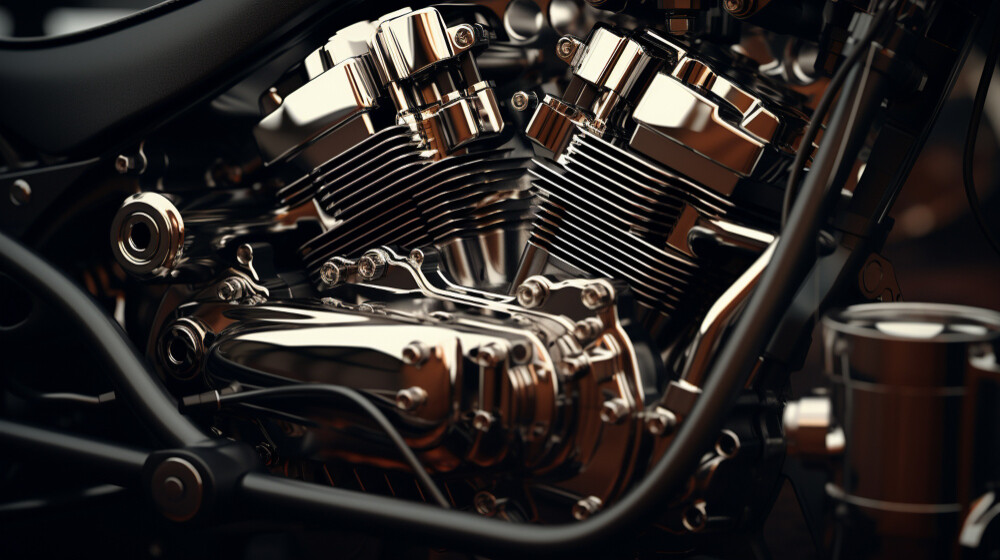Diesel engines have long been the backbone of heavy-duty transportation and industrial machinery. Known for their durability, fuel efficiency, and high torque output, these powerhouses continue to evolve, meeting ever-stricter emissions standards while improving performance. This article delves into the world of diesel engines, exploring their key components, recent technological advancements, and strategies for optimizing their operation.

The Basics of Diesel Engine Operation
Compression Ignition
Unlike gasoline engines that use spark plugs to ignite the fuel-air mixture, diesel engines rely on compression ignition. This process involves compressing air in the cylinder to extremely high pressures, causing it to heat up. When diesel fuel is injected into this hot, compressed air, it ignites spontaneously, driving the piston down and producing power.
Four-Stroke Cycle
Most modern diesel engines operate on a four-stroke cycle:
- Intake stroke: The piston moves down, drawing air into the cylinder.
- Compression stroke: The piston moves up, compressing the air.
- Power stroke: Fuel is injected and ignites, forcing the piston down.
- Exhaust stroke: The piston moves up, expelling exhaust gases.
Key Components of a Diesel Engine
Fuel Injection System
The fuel injection system is critical to diesel engine performance. It must deliver precisely metered amounts of fuel at extremely high pressures and with perfect timing. Modern systems use electronic control units (ECUs) to optimize injection timing and duration based on engine load, speed, and other factors.
Turbocharger
Turbochargers play a crucial role in enhancing diesel engine performance. Compressing the intake air allows more oxygen to enter the cylinders, supporting more efficient combustion. The 3406e turbo is an example of a robust turbocharger designed for heavy-duty applications, capable of significantly boosting engine power and efficiency.
Exhaust Gas Recirculation (EGR) System
EGR systems help reduce nitrogen oxide (NOx) emissions by recirculating some exhaust gas back into the intake manifold. This lowers combustion temperatures, which in turn reduces NOx formation.
Advancements in Diesel Engine Technology
Common Rail Direct Injection
Common rail systems have revolutionized diesel engine technology. By maintaining fuel at consistently high pressure in a common rail before injection, these systems allow for more precise control over fuel delivery, resulting in improved efficiency and reduced emissions.
Variable Geometry Turbochargers
Variable geometry turbochargers (VGTs) offer enhanced performance across a wider range of engine speeds. By adjusting the angle of the turbine vanes, VGTs can optimize boost pressure at both low and high engine speeds, improving responsiveness and efficiency.
Selective Catalytic Reduction (SCR)
SCR technology uses a urea-based solution (often called diesel exhaust fluid or DEF) to convert NOx emissions into harmless nitrogen and water. This after-treatment system has become crucial in meeting stringent emissions standards.
Optimizing Diesel Engine Performance
Regular Maintenance
Consistent maintenance is key to ensuring optimal diesel engine performance. This includes:
- Regular oil and filter changes
- Fuel system inspections and cleaning
- Turbocharger inspections
- Air filter replacements
Proper Fueling
Using high-quality diesel fuel appropriate for the climate and operating conditions is essential. In colder regions, winter-blend diesel or fuel additives may be necessary to prevent gelling.
Engine Tuning
Electronic engine tuning can optimize performance parameters such as:
- Fuel injection timing
- Turbocharger boost pressure
- EGR operation
However, it’s crucial to ensure that any tuning complies with emissions regulations and doesn’t compromise engine longevity.

Diesel Engine Efficiency Improvements
Thermal Management
Advanced thermal management systems help diesel engines reach optimal operating temperatures more quickly and maintain them more consistently. This can include:
- Electric water pumps
- Switchable coolant flow paths
- Insulated exhaust systems
Friction Reduction
Reducing internal friction can significantly improve engine efficiency. Strategies include:
- Low-friction piston rings and cylinder liners
- Advanced bearing materials
- Synthetic low-viscosity lubricants
Weight Reduction
Using lighter materials for engine components can improve overall vehicle efficiency. This might involve:
- Aluminum cylinder heads and blocks
- Composite materials for covers and housings
- Hollow camshafts
Environmental Considerations
Emissions Control
Modern diesel engines employ a variety of technologies to reduce harmful emissions:
- Diesel Particulate Filters (DPF)
- Selective Catalytic Reduction (SCR)
- Exhaust Gas Recirculation (EGR)
Alternative Fuels
Biodiesel and renewable diesel are becoming increasingly popular alternatives to traditional petroleum-based diesel fuel. These can offer reduced emissions and, in some cases, improved engine performance.
Future Trends in Diesel Engine Technology
Hybridization
Diesel-electric hybrid systems are gaining traction, particularly in commercial and industrial applications. These systems can offer significant fuel savings and emissions reductions, especially in stop-and-go operations.
Digital Twin Technology
Digital twin technology allows for real-time monitoring and predictive maintenance of diesel engines. By creating a virtual replica of the engine, operators can simulate various conditions and optimize performance without physical testing.
Advanced Materials
Research into new materials, such as ceramic components and carbon fiber reinforced plastics, promises to further reduce engine weight and improve thermal efficiency.
Wrapping Up
Diesel engine technology continues to evolve, driven by the demands for improved efficiency, reduced emissions, and enhanced performance. From advanced turbocharging systems to sophisticated electronic controls, modern diesel engines are marvels of engineering. As we look to the future, the integration of hybrid technologies, alternative fuels, and cutting-edge materials suggests that diesel engines will remain a vital part of our transportation and industrial infrastructure for years to come.
By understanding the principles behind diesel engine operation and staying informed about the latest technological advancements, operators and enthusiasts alike can appreciate the complexity and capability of these powerful machines. Whether you’re managing a fleet of heavy-duty trucks or simply curious about the engine under the hood of your pickup, the world of diesel technology offers a fascinating glimpse into the intersection of mechanical engineering, electronic control, and environmental stewardship.